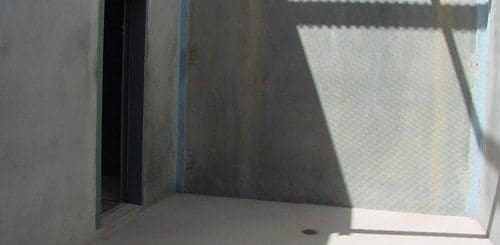New Amnesty report finds conditions in Arizona's maximum security prisons fall below international standards for humane treatment
This report describes Amnesty International’s concerns relating to the conditions under which prisoners are confined in the Special Management Units (SMU) of Arizona State Prison Complex (ASPC)-Eyman and other maximum custody facilities operated by the Arizona Department of Corrections (ADOC).
More than 2,900 prisoners are held in Arizona’s highest security maximum custody facilities, the majority in the SMUs at ASPC-Eyman. Most are confined alone in windowless cells for 22 to 24 hours a day in conditions of reduced sensory stimulation, with little access to natural light and no work, educational or rehabilitation programs. Prisoners exercise alone in small, enclosed yards and, apart from a minority who have a cell-mate, have no association with other prisoners. Many prisoners spend years in such conditions; some serve out their sentences in solitary confinement before being released directly into the community.
While the Arizona authorities classify maximum security inmates as those posing the highest institutional security risk, Amnesty International’s findings suggest that some prisoners are confined to the units who do not fit this criteria. The organization is further concerned that many of those confined to the units suffer from mental illness or disability and are held in conditions likely to exacerbate their illness or disability. This report focuses mainly on conditions in the SMUs, but also includes information on other isolation units, including the Lumley Unit Special Management Area at the women’s prison at Perryville, and the maximum custody unit at Rincon Minors, a facility for male youths aged 14 to 17 who have been tried and convicted as adults.
Amnesty International recognizes that it may sometimes be necessary to segregate prisoners for disciplinary or security purposes. However, all measures must be consistent with international standards for humane treatment. Article 10 of the International Covenant on Civil and Political Rights, which the USA has ratified, provides that “all persons deprived of their liberty shall be treated with humanity and with respect for the inherent dignity of the human person”, a standard which the United Nations (UN) Human Rights Committee, the treaty monitoring body, has stressed is a “fundamental and universally applicable rule”. As described below, Amnesty International considers that conditions in the above facilities fall short of this standard and that the cumulative effects of the conditions, particularly when imposed for a prolonged or indefinite period, constitutes cruel, inhuman or degrading treatment, in violation of international law.
In recognition of the severe effects of such treatment, international human rights treaty bodies and experts have called on states to limit the use of solitary confinement in prisons so that it is imposed only in exceptional circumstances, for a short period of time. In a recent report on this issue, reviewing the practice internationally, the UN Special Rapporteur on Torture defined solitary confinement as the “physical and social isolation of individuals who are confined to their cells for 22 to 24 hours a day”.
In conducting its research, Amnesty International regrets that its request to tour the SMU units at ASPC-Eyman was denied and that ADOC declined to meet with the organization’s delegates when they were in Arizona in July 2011. As a human rights organization which has visited prisons around the world, Amnesty International is concerned that the department was unwilling to allow it to view the facilities first-hand or to discuss its policies and practice. While the organization has thus not been able to obtain the views of the department regarding the issues raised, its concerns are based on a range of sources, including prisoners and prisoner advocates, present and former prison staff members and ADOC’s written policies and procedures.
Amnesty International is making a number of recommendations urging the department to take action, including:
- reducing the number of prisoners in isolation;
- improving conditions in the SMU and similar units;
- removing prisoners with serious mental illness from SMU or similar units;
- taking measures to reduce the number of suicides in Arizona’s prisons, and
- barring children under 18 from being held in solitary confinement.
The organization is also calling on the state legislature and Governor to address these concerns by ensuring that adequate funding is made available to provide the necessary treatment and rehabilitation programs for inmates, most of whom will eventually return to the community. As described below, some jurisdictions have reduced the high cost of “supermaximum” security confinement by reducing the numbers held in such restricted custody, allowing resources for more effective programs without compromising safety or security. Amnesty International also urges the state government to take action to ensure that children and youthful offenders incarcerated in the adult system receive treatment appropriate to their age and developmental needs.

